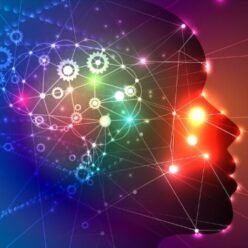Balance issues are common after a brain injury. The ability to maintain balance and orient ourselves to the outside world is vitally important. Symptoms of dizziness, unsteadiness, and imbalance have been most frequently attributed to sensory organization problems. Three systems in the body act in concert to maintain stable orientation and the sensation of being well balanced. These three systems are the visual system, the vestibular (inner ear) system, and the proprioceptive (sensory nerves) system. However, most people don’t realize the complex interactions involved between multiple systems in the brain and body. Brain injury often disrupts these systems, resulting in different problems with balance.
Also, brain injury can cause slower reaction time, and test results show poor performance after brain injury, due to thinking and processing skills. The findings indicate that brain injury causes slower information processing, deficits in divided attention, an impairment of focused attention, and inconsistency of coordination and performance. Reaction time depends on central nervous system processing speed. Thus, visual reaction time is a critical factor in higher cognitive functions. The healthier the brain, the faster its processing speed, memory and thinking skills, thus better reaction time.
We cover balance and reaction together, because they are two major areas that are affected by brain injury, especially after concussions. Both are the result of poor multi-system performance, and coordination between the brain and the body. The brain is pure processing power, which turns data into action. It perceives the world around us, and tells us how to react to it. The brain is also mission control of the human body and the nervous system. Once the brain decides how to react, a host of neurons starts firing, and those actions take place quickly, as in fractions of a second. So, it is not surprising that balance and reaction time can be affected after sustaining even a mild brain injury.
Our experience
After her brain injury, Sarah had experienced balance and reaction issues. While those issues were not severe, they had all sorts of impacts, and resulted in several mishaps, including falls and injuries as well as running into objects. There was one other related brain injury issue that caused confounded symptoms, her right superior peripheral vision loss (top right region of both eyes). This made it hard to figure out the exact reason(s) for her balance and reaction issues. Over the years, those balance and reaction issues have improved. This was the result of either, or a combination of, healing and improvement, unintentional overcompensation, new level of coordination between the body and mind, and adaptation techniques.
Here are a couple of examples of her adaptation techniques. Sarah had shared with me a story about this section of her kitchen cabinet that sort of protrudes out, and how she tends to bump into it frequently while in the kitchen preparing food. After several repeats, she now goes to that part of the counter and leans on it every time she is in the kitchen preparing food, problem solved. Also, she is selective about the shoes she wears, and always scans the path ahead when walking to minimize tripping, falls, and injury. I can only imagine how those ongoing scans could add eye strain and result in exhaustion to the already overworking brain.
In my case, I had some balance issues after each of my brain injuries, but they were brief and resolved on their own. I am not sure whether playing sports and my good coordination was the reason, or whether the responsible part of the brain was only slightly injured or healed faster. However, my reaction time took longer to recover, which does not make sense. I remember having better balance and coordination, and slower reaction time. For example, I remember seeing objects coming at me, like a stray ball, bicycles, or cars, and while I understood what that meant and what I should do, my body did not respond, or responded later than it should. In any case, I had no choice but to power through all these symptoms over the years, and thankfully, these symptoms did not last long and there were no serious incidents.
Remedies
Our balance and reaction time require precise sensory organization, optimum processing power, attention, focus, and memory. Even a mild brain injury will result in deficiency in sensory organization, inconsistent performance of the central nervous system, and poor coordination between the brain and body parts. These problems may take time to resolve, but here are some things that you can do to help speed up this process.
Therapy –
Specialized physical therapists can help design a customized program with balance retraining exercises (vestibular rehabilitation), help you compensate for imbalance, adapt to less balance and help you maintain the needed physical activity.
Retrain exercise –
Special exercise can be very helpful as well, in order to build and improve balance, flexibility, strength, and reaction time. This includes core strength, gym ball, balance board, and practice standing on one leg. Also, walking frequently will also help retrain your brain and body coordination, and should include walking on different types of surfaces. Swimming and dancing are also very effective for retraining the mind and body coordination, flexibility, balance, and reaction.
